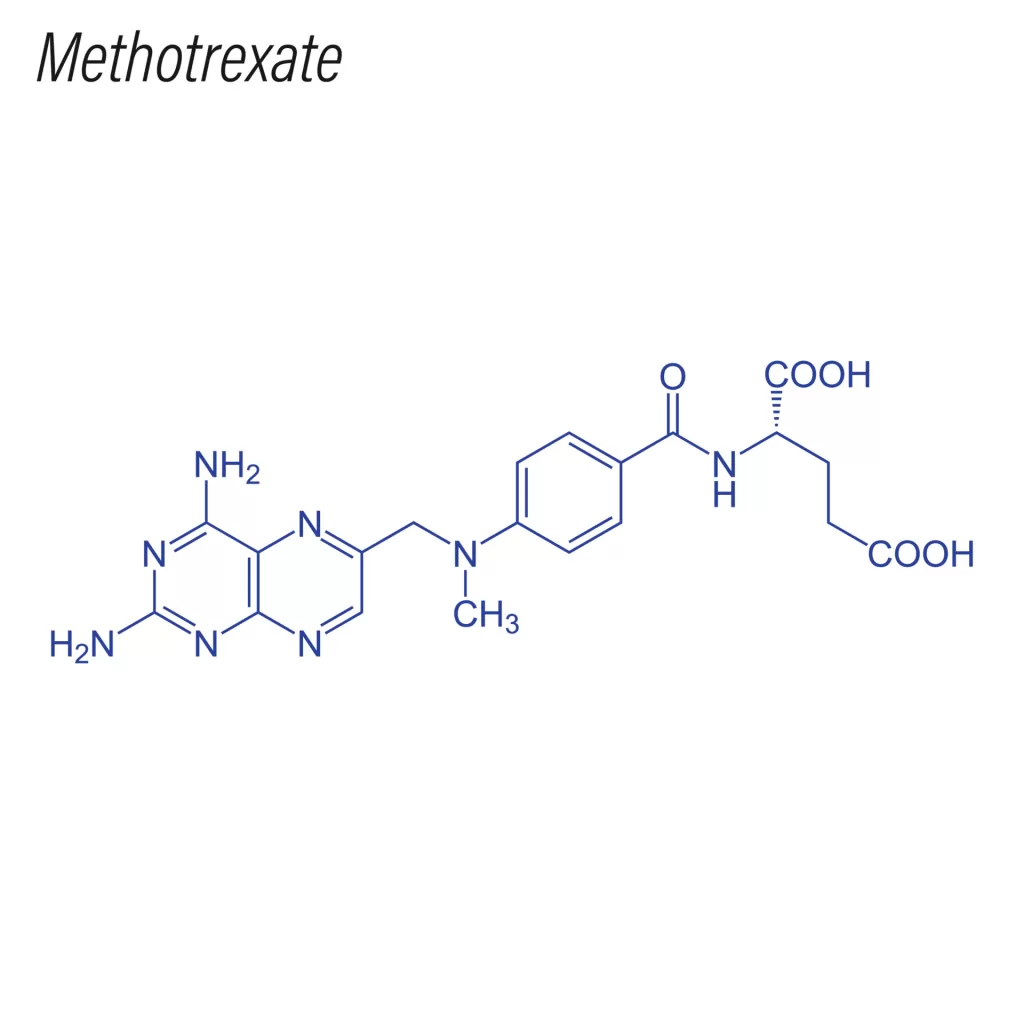Methotrexate is a potent chemotherapy drug used to treat various types of cancer, including leukemia, lymphoma, and solid tumors. This is according to Voraxaze. It works by inhibiting the growth and spread of cancer cells. However, methotrexate has a narrow therapeutic window, which means that it can be toxic if the dosage is not closely monitored or if the body cannot efficiently eliminate the drug. In cases of methotrexate toxicity, having access to a methotrexate antidote is essential. Let me explore for you the mechanism of methotrexate toxicity, its symptoms, and the life-saving antidote known as leucovorin.
What is Methotrexate Toxicity?
Methotrexate functions by inhibiting dihydrofolate reductase, an enzyme required for the synthesis of nucleic acids. By blocking this enzyme, methotrexate interferes with the rapid cell division that characterizes cancer. However, methotrexate’s effect is not limited to cancer cells; it also impacts rapidly dividing healthy cells, leading to side effects. If not appropriately managed, methotrexate levels in the body can become toxic, causing severe complications.
Methotrexate toxicity typically results from one or more of the following factors:
- Overdose: Excessive methotrexate dosing, often due to calculation errors or misunderstandings, can lead to toxicity.
- Impaired Elimination: Kidney or liver dysfunction can hinder the body’s ability to eliminate methotrexate, increasing the risk of toxicity.
- Delayed Excretion: Some individuals experience delayed methotrexate excretion, which prolongs exposure to the drug.
Symptoms of Methotrexate Toxicity
Methotrexate toxicity can manifest in various ways, depending on the severity and duration of exposure. Common symptoms of methotrexate toxicity include:
- Gastrointestinal disturbances, such as nausea and vomiting.
- Mouth ulcers or sores.
- Low blood cell counts, lead to anemia, increased susceptibility to infections, and bleeding tendencies.
- Kidney or liver dysfunction.
- Skin rashes.
- Neurological symptoms, such as confusion or seizures.
- Respiratory distress.
- Bone marrow suppression.
In severe cases, uncontrolled methotrexate toxicity can lead to life-threatening complications, including organ failure and death.
The Methotrexate Antidote: Leucovorin
Leucovorin, also known as folinic acid, is the specific antidote for methotrexate toxicity. It serves as a rescue therapy by rapidly counteracting the toxic effects of methotrexate.
Key characteristics of leucovorin as a methotrexate antidote include:
- Folate Replacement: Leucovorin is a form of folate, a crucial nutrient for DNA synthesis and repair. By providing the body with an alternative source of folate, leucovorin helps circumvent the inhibition of dihydrofolate reductase caused by methotrexate.
- Rapid Action: Leucovorin works quickly, and its administration can dramatically reduce the severity of methotrexate toxicity within hours.
- Dosage Adjustments: The dose of leucovorin is often adjusted based on the degree of methotrexate toxicity and individual patient factors.
- Continuous Monitoring: Close monitoring of the patient’s condition and methotrexate levels in the blood is necessary to ensure that the antidote is effectively reversing the toxic effects.
Remember!
Methotrexate is a potent chemotherapy drug with significant therapeutic benefits in cancer treatment. However, its narrow therapeutic window requires careful dosing and monitoring to prevent methotrexate toxicity, which can have severe consequences.
If you are experiencing chest angina linked to methotrexate toxicity, prompt medical care is crucial for you. Competent healthcare professionals with expertise in methotrexate-related concerns will administer the antidote, such as folinic acid, as a component of a comprehensive treatment strategy. This approach may encompass additional supportive actions like managing chest angina symptoms, ensuring hydration, and vigilant monitoring for potential complications.
Leucovorin, the specific antidote for methotrexate, is a critical tool in managing and reversing the effects of toxicity. Its rapid action, dosage flexibility, and ability to restore the body’s folate levels make it a valuable intervention in cancer care. Healthcare providers and patients must be aware of the potential dangers of methotrexate toxicity and the availability of this life-saving antidote to ensure its timely administration when needed.
For a comprehensive look at health topics, visit www.medicalantidote.com.


